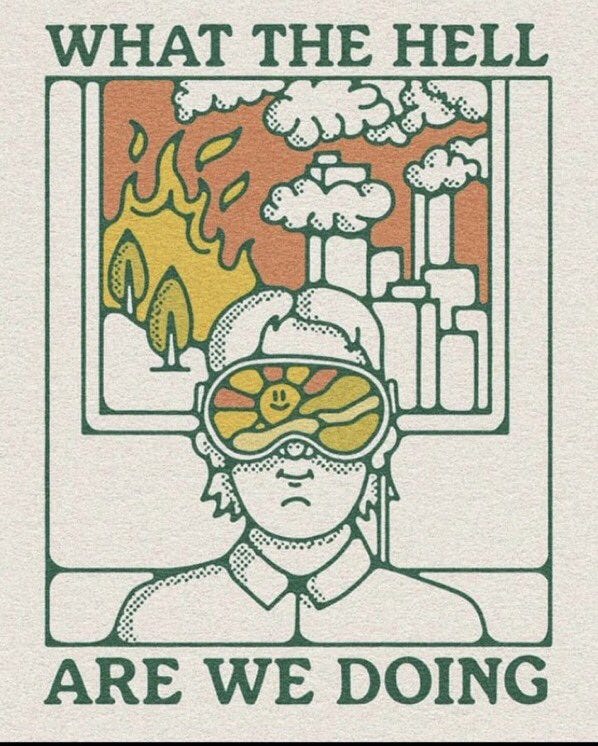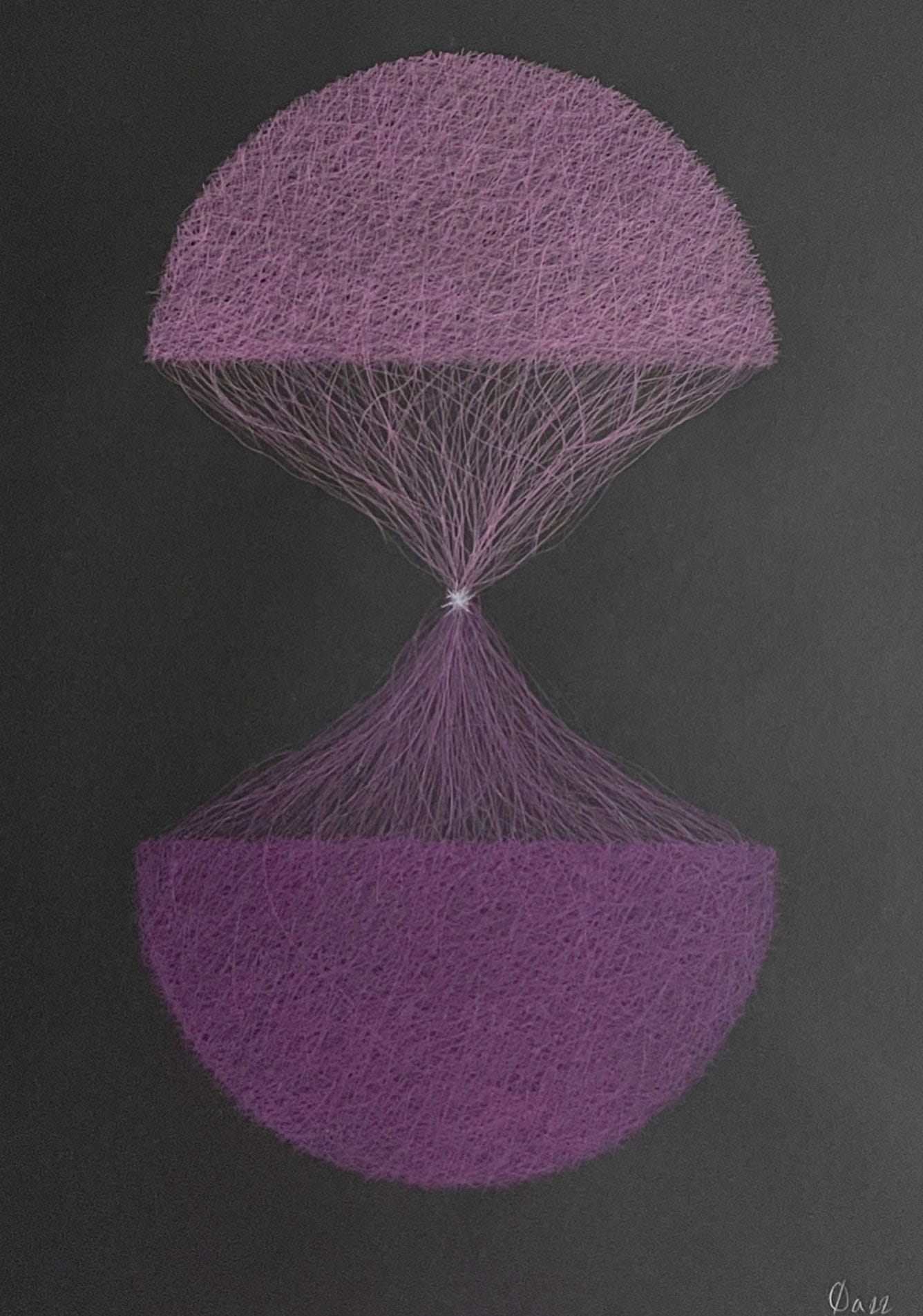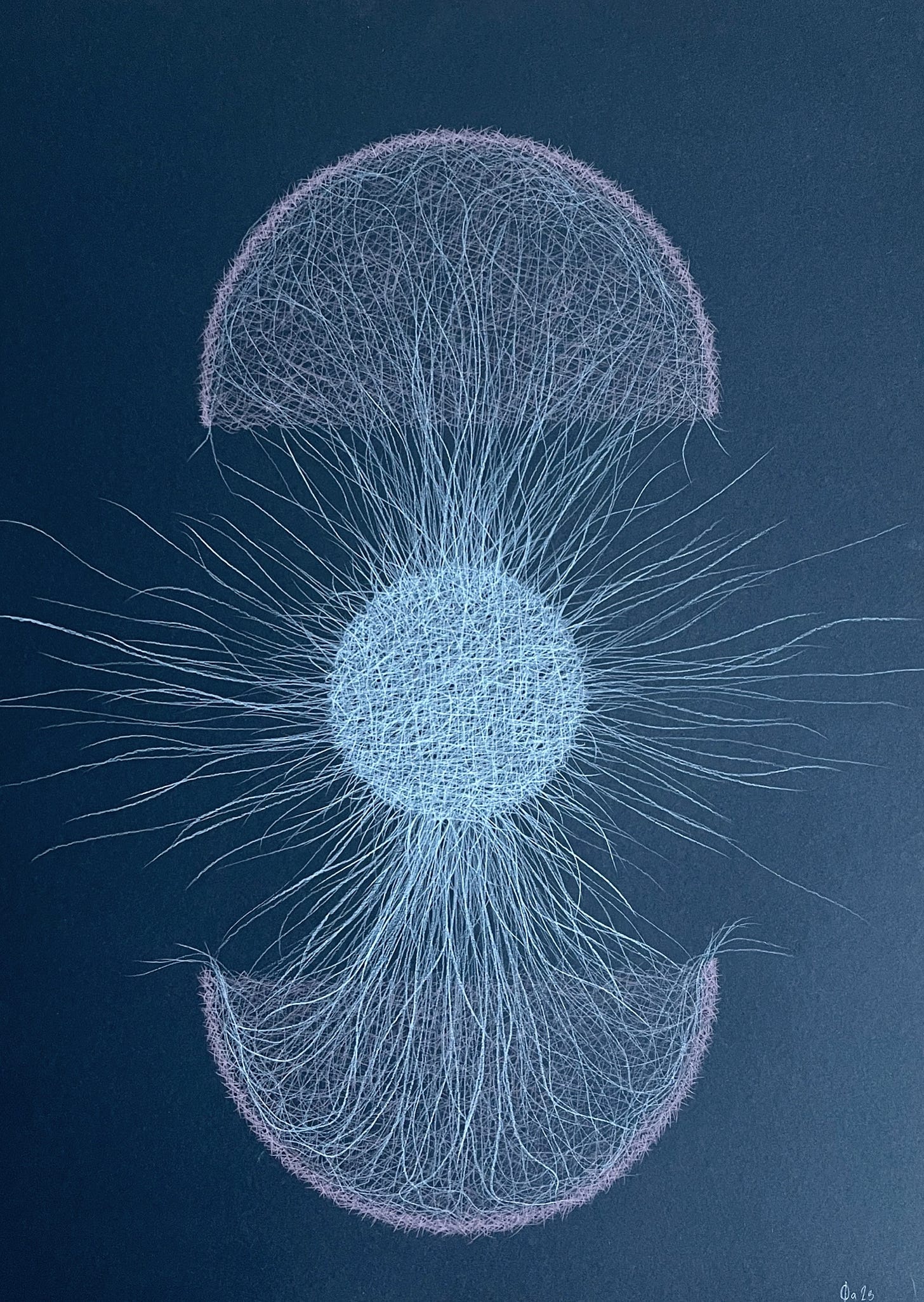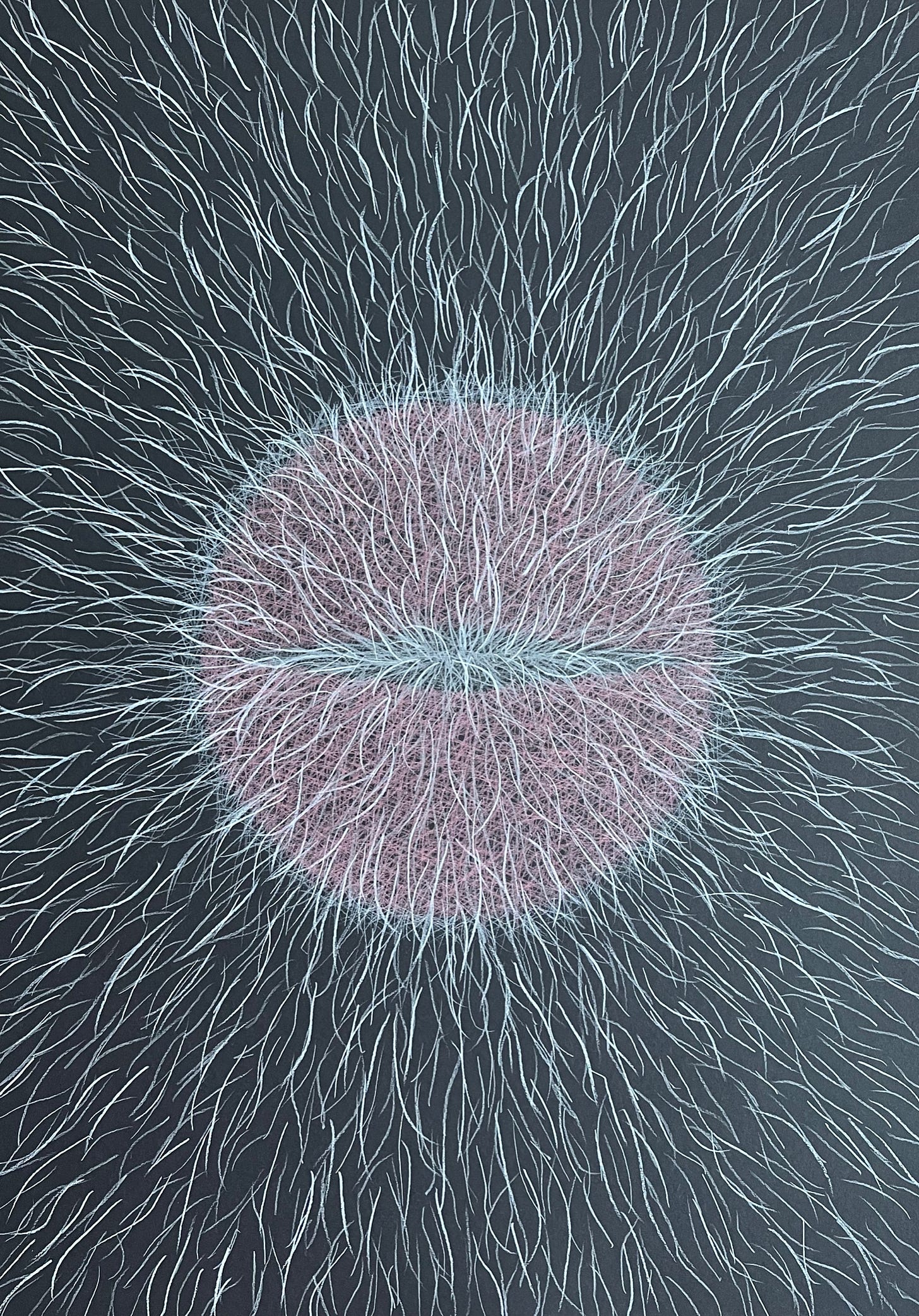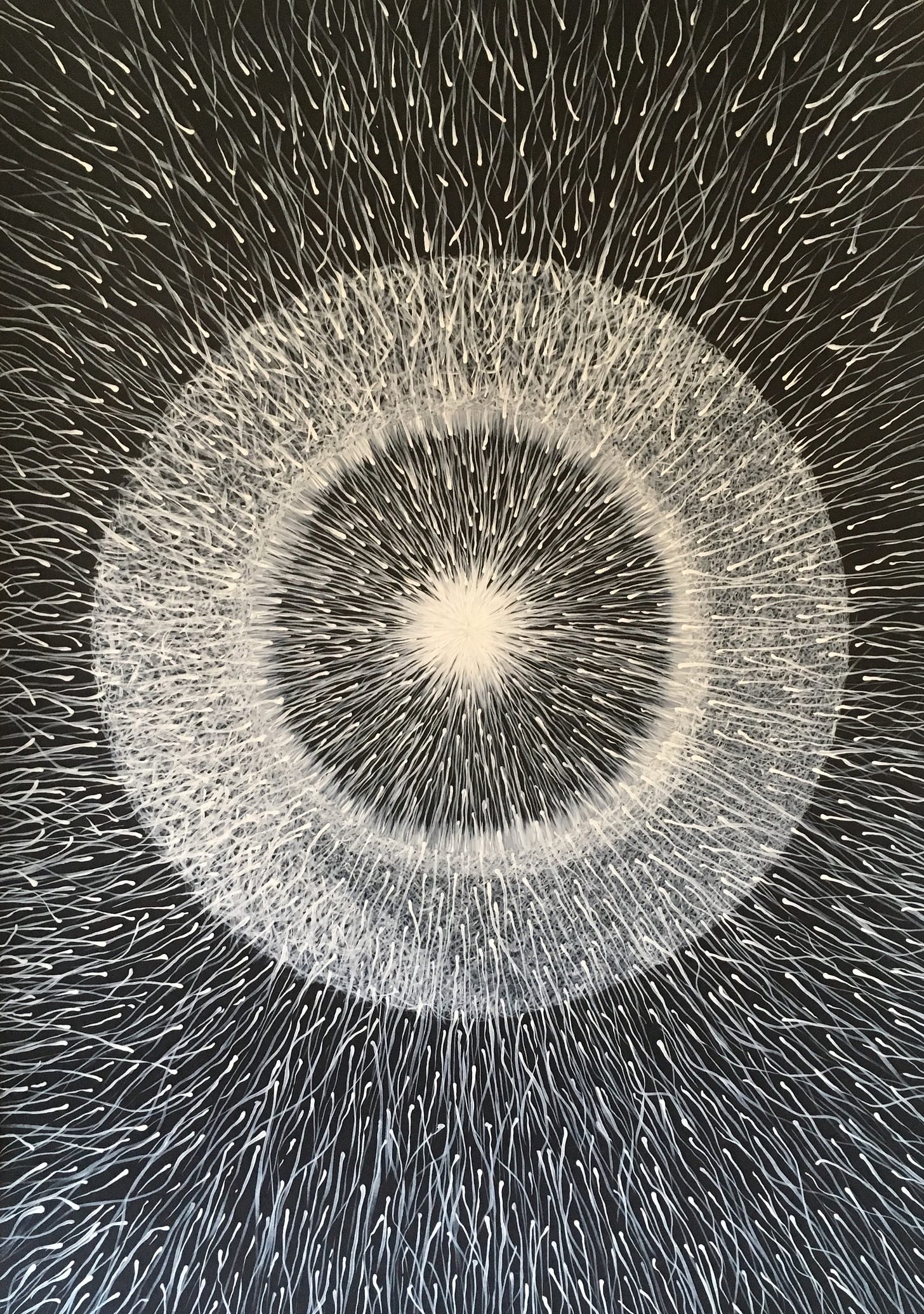Issue Four: Focus on Ecology
"How do we think our way through the messes we’re in when the way we think is part of the mess?" — Nora Bateson
Thanks to all the recent subscribers, we really appreciate your support!
Given the current constant and catastrophic news around climate change, we decided to dedicate an issue to ecology. Our belief is that the modern human habit of treating our planet like collection of ‘resources’ to be converted into numbers on a screen, otherwise known as ‘money’ comes out of a materialist metaphysics where death is the absolute end so we might as well ‘get ours while we can’, before someone else does. Changing this fundamental belief towards one where consciousness is primary and death is not the end (even if it is the end of our physical body), we think could go a long way towards a more healthy and humble relationship with the biosphere which sustains us.
Please remember you can follow us on Twitter, and on Instagram and Threads @theelevator_earth.
Thanks again to Camilla Carlsen for permission to use her wonderful paintings. You can follow her on Instagram if you would like to.
Table of Contents
Consciousness and Near-Death Experiences:
Factors of mystical experience and near-death experience in relation to fear of death
Consciousness beyond death, with Dr. Pim van Lommel
Consciousness and Psychedelics:
The Rebranding of MDMA | The New Yorker
On the need for metaphysics in psychedelic therapy and research
The Great Cosmic Joke—Are You In On It? | DoubleBlind Mag
Truth Be Told: Season 5 - EP 1: How To Get Free on Apple Podcasts
Consciousness and Virtual Reality:
Psychedelic replications in virtual reality show potential in treating depressive symptoms
Consciousness and Hypnosis:
Consciousness and Neuroscience:
Heart Rate Variability Synchronizes When Non-experts Vocalize Together - PMC
Consciousness and Psychedelic Therapy:
MDMA: Australia begins world-first psychedelic therapy
Democratizing Psychedelics: From Ancient Rituals to Modern Medicalization
Consciousness and Philosophy:
Re-examining Religion: Zach Bell at Paua
Imagination as the ground of reality, with Patrick Harpur
Ezra Klein Interviews Erik Davis - The New York Times
Consciousness and Artificial Intelligence:
Focus on Ecology and Climate
Gregory Bateson changed the way we think about changing ourselves | Aeon Essays
Carl Safina: Wolves, whales and the wonders of nature
Ayahuasca May Have Aided in the Rescue of Children Lost in the Amazon Forest | Psychedelic Spotlight
Dancing with a permanent emergency - by Jonathan Rowson
The Book of Minds: How to Understand Ourselves and Other Beings, from Animals to AI to Aliens
What to Do with Climate Emotions | The New Yorker
Fighting Climate Anxiety on the Frontlines
Read an ER doctor’s essay on climate distress that no one else would publish
How Scientists Are Using AI to Talk to Animals - Scientific American
Neil Theise on Connection, Consciousness and Being ‹ Literary Hub
Trees in Themselves | Verlyn Klinkenborg | The New York Review of Books
Your Grief Belongs to the Earth
Nuggets From The Archive
Marge Jacobsen: Black Healing & Psychedelics by Fruiting Bodies
Linda G. O'Bryant Noetic Sciences Research Prize
Bigelow Essay No.2 ‘Continuity of Consciousness’
“I would not give a fig for the simplicity this side of complexity, but I would give my life for the simplicity on the other side of complexity.” — Oliver Wendell Holmes
Factors of mystical experience and near-death experience in relation to fear of death
Near-death experiences, psychedelics and the fear of death: this study is looking for people who have had either a near-death experience or a mystical experience induced by psychedelics to explore how these experiences relate to feelings around death and dying. If you have had one of these experiences and can spare 15-20 minutes to complete the survey please contact the organizers.
The study is being conducted as part of Anna Binoy’s MSc Psychology thesis at the University of Greenwich, and is being supervised by Dr David Luke, Associate Professor of Psychology, and has been approved by the Departmental Research Ethics Committee. All responses remain anonymous and the data is treated with strict confidentiality. Clink on the link above for the briefing information and short survey.
The Rebranding of MDMA | The New Yorker
MDMA, a drug commonly known as Ecstasy or Molly, has an interesting history. While it has been associated with the party scene, recent research has suggested that it could be used as a treatment enhancer in psychotherapy, particularly for post-traumatic stress disorder (PTSD). MDM was used by therapists in the past, and recent clinical trials have shown promising results for treating PTSD. It seems to have fundamentally different characteristics to other psychiatric medications, and as such could be used to enhance therapy rather than as a standalone treatment. The article also discusses the potential risks of MDMA, including the need for further research on its effects on the brain.
On the need for metaphysics in psychedelic therapy and research
Peter Sjöstedt-Hughes discusses the need for metaphysics in psychedelic therapy and research, arguing that integrating metaphysical experiences induced by psychedelics, and providing patients with a framework for understanding metaphysical options can enhance the therapeutic benefits. He presents a "Metaphysics Matrix" schema and a Metaphysics Matrix Questionnaire (MMQ) as tools for evaluating and measuring psychedelic experiences. He emphasizes the importance of distinguishing metaphysics from mysticism and explores the potential of integrating philosophy with practical science in psychedelic-assisted psychotherapy. The proposal is that incorporating metaphysics can help individuals make sense of their experiences and lead to longer-term positive outcomes.
Psychedelic replications in virtual reality show potential in treating depressive symptoms
Researchers at the University of Tartu have developed a virtual reality (VR) experience that mimics the effects of psychedelic drugs, with the aim of providing therapeutic benefits similar to psychedelic-assisted psychotherapy. Their study involved 13 individuals with mild to moderate depression, who experienced a VR program called Psyrreal. The results showed a significant reduction in depressive symptoms two weeks after the VR experience. While the study did not consistently replicate the effects of psychedelic substances, it provides promising evidence for the potential of VR in alleviating depression.
Demystifying hypnosis: Unravelling facts, exploring the historical roots of myths, and discerning what is hypnosis
This narrative review traces the history of myths surrounding hypnosis in contrast to the evolution of hypnosis as a treatment modality. It compares hypnosis to other interventions with similar procedures and features, unravels misconceptions that have impeded the adoption and acceptance of hypnosis in clinical and research settings, and presents evidence to demystify this intervention.
REIMAGINING RELIGION | ZACH BELL | PAUA PARIS 2023
Zach Bell speaks at the Paua Paris conference in 2023 about his concept of a "religion of no religion" and spiritual practices. He talks about the growing trend of people identifying as spiritual but not religious and the need for a template to guide spiritual practices. Bell introduces the concept of the eternal calendar, which he describes as the through line that connects every spiritual practice, tribal tradition, and religion that has ever existed in the world. He believes that by following this calendar, people can put all spiritual practices in a simple order and start doing things together instead of alone.
Heart Rate Variability Synchronizes When Non-experts Vocalize Together - PMC
A study conducted by researchers from Queen Mary University of London and the University College London has found that heart rate variability (HRV) between individuals synchronizes when they sing or chant together, and that this synchronization is not limited to experts. The study involved participants undertaking four vocalization tasks, with HRV measurements and subjective ratings of togetherness taken throughout. HRV was found to be significantly higher in the synchronized tasks compared to the asynchronous tasks, indicating that vocal synchronization leads to increased autonomic nervous system entrainment. However, there was no significant correlation between HRV synchronization and subjective ratings of togetherness. The researchers suggested that there are likely multiple factors that contribute to the subjective experience of togetherness, including common goals and a sense of playfulness.
MDMA: Australia begins world-first psychedelic therapy - BBC News
Australia has become the first country to classify psychedelics as medicines at a national level. The decision will allow psilocybin, found in magic mushrooms, to be used for treatment-resistant depression, and MDMA, known as Ecstasy in tablet form, for post-traumatic stress disorder (PTSD). While many experts and patients are hailing it as a landmark moment, major health organizations have urged caution. The initial access to the drugs will be limited and costly. The cost of treatment could spiral to A$30,000 per treatment, according to one psychedelics expert. Due to the prohibitive price tag, the treatments are expected to remain unaffordable for most patients. The Australian Medical Association (AMA) and the Royal Australian and New Zealand College of Psychiatrists (RANZCP) have expressed serious concerns. Both groups have called for larger-scale studies and better research into psychedelic treatments, warning of unknown risks, long-term side effects, and "potentially very limited benefits" from their use in therapy.
Democratizing Psychedelics: From Ancient Rituals to Modern Medicalization
Christian Angermayer is a serial entrepreneur and investor who builds and invests in companies that are shaping the Next Human Agenda: a future in which technology empowers people to live longer, healthier, and happier lives. He has been a driving force in pushing psilocybin toward FDA-approval. But his company Atai Life Science's psychedelic patents have drawn criticism from decriminalization-first advocates. Some wonder if the medical approach to psychedelics conflicts with the idea of open access and shamanic usage. In this podcast, Angermayer delves into this question, examining opposing views and exploring other dichotomies, such as whether capitalism and spirituality can coexist in the realm of psychedelics. He also considers the potential conflict between the search for psychedelic wisdom and the desire for immortality.
The Great Cosmic Joke—Are You In On It? | DoubleBlind Mag
Delilah Friedler discusses the concept of the "cosmic joke" that arises from psychedelic experiences and human exploration of consciousness. It is described as a realization that the universe or existence itself is humorous or absurd, and that all human problems and sufferings are put into perspective when recognizing our smallness in an unthinkably vast universe. The cosmic joke is not easily defined and looks different in the eye of each beholder, but it often involves the dissolution of rigid, dualistic thinking and the revelation of the illusory boundaries between ourselves and the external world. Friedler also explores the history of the concept and its meaning to various philosophical and spiritual thinkers.
Imagination as the ground of reality, with Patrick Harpur
In this video interview Patrick Harpur explains how, for him, imagination is even more fundamental than rational thinking, serving as the very ground of reality. He argues that the collective unconscious, which is filled with gods and daimons, has a profound influence on our lives, whether we are aware of it or not. He emphasizes that true knowledge requires initiation and engaged imaginative knowing, going beyond mere cognition and fact-learning. This perspective aligns with ideas found in Kabbalah and Hermetic philosophy, where reality is seen as hierarchical.
Drawing from Plato's philosophy, Harpur highlights the importance of both rational thinking (the 'Logos strand') and imaginative storytelling (the 'Mythos strand'). The Neoplatonists believed that the Cosmos was rooted in Soul or Soul stuff, with all aspects of the natural world and daimons composed of images in Soul. Harpur also notes that throughout history, the Western esoteric tradition has consistently emerged, challenging mainstream traditions and sparking incredible bursts of creativity and ideas.
So You Want to Be a Sorcerer in the Age of Mythic Powers... (The AI Episode) - The Emerald | Podcast on Spotify
Artificial Intelligence (AI) has sparked a multitude of discussions about its benefits, risks, and ethical implications. However, this podcast suggests that to truly comprehend the profound impact of AI, we must approach it through a mythical lens. The powers once attributed to magicians and sorcerers, such as instant access to vast knowledge, the ability to create immersive alternate realities, and the power to manipulate and materialize on a grand scale, are now a reality. As we venture into this new era, it is essential to recognize that our fascination with AI goes beyond innovation and control. It taps into our deep-seated desires for mystery, the longing to experience powers beyond our grasp, and the unconscious yearning for guidance and initiation. The exploration of AI requires a shift from scientific ethics to ancient principles of magic and mystery schools, as the stakes are higher and the consequences more profound than ever before.
Transcript: Ezra Klein Interviews Erik Davis - The New York Times
Ezra Klein interviews Erik Davis about California culture and the concept of "weirdness." They discuss the history of California, the relationship between the weird and California culture, and the political diversity of the state.
Truth Be Told: Season 5 - EP 1: How To Get Free on Apple Podcasts
Tonya Mosley sets out to try magic mushrooms and discovers the psychedelic renaissance is overwhelmingly white despite its Indigenous and African roots. Episode 1 kicks off this 6 part journey which explores the latest science, the push for FDA approval, and the movement to get Black and Brown therapists trained in psychedelic therapy.
Consciousness beyond death, with Dr. Pim van Lommel
Cardiologist Dr. Pim van Lommel became internationally known after his ground-breaking study on NDEs (Near Death Experiences) was published in the respected medical journal The Lancet, in 2001. The study was remarkable in that it was a prospective one: conditions were set and ready before patients underwent cardiac arrest. The results showed that merely physiological explanations for the NDEs were inadequate, thereby raising profound questions about the nature of consciousness and its relation to brain function. In this in-depth video interview, Essentia Foundation’s Natalia Vorontsova discusses the philosophical implications of these findings with Dr. van Lommel at his house in the Netherlands.
Focus on Ecology and Climate
“Alienation from nature and the loss of the experience of being part of the living creation is the greatest tragedy of our materialistic era. It is the causative reason for ecological devastation and climate change. Therefore I attribute absolute highest importance to consciousness change. I regard psychedelics as catalyzers for this. They are tools which are guiding our perception toward deeper areas of our human existence, so that we again become aware of our spiritual essence.” — Albert Hofmann
“Our spiritual ecology simply does not permit private awakening. The ecology of consciousness is an inherently collective ecology.” — Chris Bache, Diamonds From Heaven
Gregory Bateson changed the way we think about changing ourselves | Aeon Essays
Gregory Bateson was a ground-breaking anthropologist who revolutionized the field by bringing communication theory to psychoanalysis and inventing the concept of the "double bind." This important Aeon essay covers all the main points of his storied career. Bateson made one of the first scientifically and philosophically argued pleas for a holistic approach to the world's environmental crisis. He proposed a paradigm shift in the way we think of ourselves as purposeful, decision-making actors in the world, and sought to inspire us to start thinking about changing ourselves. His work emphasized the importance of understanding the relationship between individuality and culture and questioned the limitations of a traditional scientific approach.
Carl Safina: Wolves, whales and the wonders of nature
The naturalist Carl Safina has spent his career studying animals and marine life. In this article he explores new ways of looking at the natural world and shares stories about the scientific, moral, and social dimensions of our relationship with nature. He emphasizes the similarities between humans and animals, and the need to treat all living things better. Overall he is optimistic about efforts in conservation and spotlights those people who are willing to fight to preserve our natural habitat
Ayahuasca May Have Aided in the Rescue of Children Lost in the Amazon Forest | Psychedelic Spotlight
Four children lost in the Amazon jungle were rescued by the combined efforts of the Colombian army and indigenous volunteers. The children had gone missing after a plane crash in the jungle. After 39 days of unsuccessful search, the rescue team decided to take ayahuasca, a potent psychedelic brew containing DMT, known to induce mystical experiences consisting of interactions with other dimensional spirits and entities. The children were found the next day, and one of the rescuers attributed the success to ayahuasca.
Dancing with a permanent emergency - by Jonathan Rowson
Rowson discusses his evolving relationship with climate change and how it led him to focus on the "metacrisis," or the larger societal and existential challenges facing humanity. He reflects on the interconnectedness of climate change with other societal issues and the need for a more nuanced approach to addressing it. He also discusses recent developments in climate change, including the increasing severity of heatwaves and the politicization of the issue in some countries, and concludes by emphasizing the importance of taking action to address the climate crisis and the metacrisis as a whole.
The Book of Minds: How to Understand Ourselves and Other Beings, from Animals to AI to Aliens
In "The Book of Minds: How to Understand Ourselves and Other Beings, from Animals to AI to Aliens," Philip Ball reveals fascinating insights about the nature of minds. In this article he explains that minds exist in a multi-dimensional space, not along a linear scale of intelligence, encompassing differences between humans, animals, and machines. Minds evolved to free us from genetically hard-wired behavior, allowing for adaptive and improvisational responses. Ball also explores the idea that all living entities, from plants to bacteria, display cognitive behavior and make decisions. He also considers artificial general intelligence (AGI), suggesting that it may not require the same kind of mind as humans and argues that free will is real, as minds play a crucial role in decision-making.
What to Do with Climate Emotions | The New Yorker
Jia Tolentino discusses the emotional toll of climate change and how people are coping with it. She tells the story of Tim Wehage, who struggled with feelings of powerlessness and despair after traveling to cities affected by climate change. The role of therapy in helping people process their climate-related emotions and take action to address the crisis is also discussed. She notes that many people avoid discussing climate change and struggle to make meaningful changes related to it in their own lives.
Fighting Climate Anxiety on the Frontlines
Mental health professionals in the Philippines are using decolonial strategies to address climate anxiety, which is becoming increasingly common in the country due to its vulnerability to climate change. This article by Whitney Bauck highlights the challenges of accessing mental health care in that country, particularly for those most affected by climate disasters, and the need for community-based interventions to address the issue. The article emphasizes the importance of adopting a decolonial approach to mental health care that takes into account the cultural particularities of the Philippines.
Read an ER doctor’s essay on climate distress that no one else would publish
An ER doctor named Dr. Joe Vipond wrote an essay on climate distress, yet found that no media outlet would publish it. He talks about the challenges of the present climate crisis, such as early and intense wildfires, and the impact of our fossil fuel extractive economy on the natural world. He also writes about how acknowledging the difficult emotions he feels is important in dealing with the climate crisis. “What if part of our inability to deal with the underpinnings of the climate crisis has to do with our refusal to acknowledge the emotions of what we are feeling? In our society, we must pretend that all is well, don’t look at that scary stuff over there, let’s go for brunch. Don’t look up.”
How Scientists Are Using AI to Talk to Animals - Scientific American
Scientists are using improved sensors and artificial intelligence (AI) technology to observe and decode how various species, including animals and plants, communicate. This field, known as "digital bioacoustics," involves using small, portable digital recorders to capture sounds in remote locations. AI algorithms are then used to analyze and detect patterns in nonhuman communication. For example, scientists have used voice-recognition programs to analyze the vocalizations of bats and classify their sounds, revealing that these animals have more complex language than previously understood. In another example, researchers have used computer vision and natural-language processing to track and decode honeybee communication, leading to the development of a robot that can communicate with honeybees and influence their behavior. This technology is expanding our understanding of nonhuman communication and challenging our assumptions about language and intelligence.
Neil Theise on Connection, Consciousness and Being ‹ Literary Hub
In this podcast, Andrew Keen talks to Neil Theise, a professor of pathology at NYU Grossman School of Medicine, about his scientific theory of connection, consciousness, and being. Theise's research has led to interdisciplinary collaborations in fields such as integrative medicine, consciousness studies, and the science-religion dialogue.
Trees in Themselves | Verlyn Klinkenborg | The New York Review of Books
Klinkenborg discusses the history of the discovery of the world's oldest trees in the United States and the various predictable events that followed, including the damage caused by visitors and the commercialization of the trees. He also explores the scientific value of ancient trees, particularly the Great Basin bristlecone pines, which provide a high-resolution chronicle of climatic conditions during their lifespan. The article raises the philosophical question of whether naturally occurring trees of great age have value in themselves and suggests that humans could learn to relate to trees on their own terms, rather than anthropomorphizing them.
Your Grief Belongs to the Earth
Niels Devisscher discusses his experience of visiting a forest in Harz, Germany, and feeling a sense of grief and depression upon seeing the clear-cut landscapes. He questions whether emotions are not just inner states but an ongoing, planetary ‘process of emotioning’, and suggests that grief may not belong to individuals but to the earth. He also explores the idea of interbeing and the importance of actively participating in the world through awakened senses and an open mind and heart.
Climate change: Do you have eco-anxiety? | BBC Ideas
Eco-anxiety is a powerful and genuine fear of the future impact of climate change. It stems from the existential dread of our survival and the realization that we are not doing enough to address this urgent issue. Coastal city flooding, forest fires, and tornadoes serve as reminders of the ecological disasters we are already facing, while others around the world suffer even more. The fear of people mistreating each other out of panic and fear is also a significant concern. This video argues that raising awareness and awakening more people to the reality of climate change is crucial, as is understanding our individual impact and taking action within our reach. Despite feelings of helplessness, there is hope in acknowledging our past failures and the need for a collective effort to shape a better future.
Nuggets From The Archive
Daytime light exposure and feelings of vitality: Results of a field study during regular weekdays - ScienceDirect
In a year-long study, researchers examined the impact of daily light exposure on vitality levels throughout the day. Using experience sampling, continuous light measurement, and sleep diaries, they found significant variations in hourly light exposure among individuals. The study revealed a strong correlation between higher light exposure and increased vitality, even after accounting for personal characteristics, time of day, activity patterns, and sleep duration. This relationship was particularly pronounced in the morning, during darker months, and when participants reported lower vitality in the previous hour. The findings highlight the positive effects of light exposure on daytime vitality in real-life situations.
BBC Digital Human: The Sacred
In this podcast, Aleks Krotoski asks if technology really can give us a greater understanding of our relationship with the sacred. In Maori culture, the introduction of portrait photography initially caused fear as the people believed their life force would be lost. However, they soon realized that photography could capture the everlasting spirit of a person. Similarly, Robin Finn kept her connection with her deceased mother alive by leaving voicemails on her phone, hoping that they would reach her in some way. David Glowacki, a scientist, uses virtual reality to explore the connection between energy and the sacred. This raises the question of whether technology can provide us with a deeper understanding of our relationship with the sacred.
Marge Jacobsen: Black Healing & Psychedelics by Fruiting Bodies
The Fruiting Bodies podcast is an intersectional response to the mushroom boom and the next wave of psychedelics. It is an extension of the Fruiting Bodies Collective, an active and diverse online community of seekers, healers, activists, and our allies.
Linda G. O'Bryant Noetic Sciences Research Prize
We thought it would be interesting to share a link to the work of three winners of this $100,000 prize, organized by the Institute Of Noetic Sciences.
Bigelow Essay No.2 ‘Continuity of Consciousness’
Continuing with our summaries of the essays in the Bigelow Essay Contest. The second prize was won by Dr. Pim van Lommel for his essay ‘Continuity of Consciousness’, in which he discusses, as do all the entries, the evidence for life after the death of the physical body.
Dr. van Lommel is famous for his scientific research on near-death experiences (NDE) during cardiac arrest which he was able to carry out as part of his work as a cardiologist in the Netherlands. Here are some of the main points in the essay, although I do suggest reading it all as it gives a very clear overview of the different strands of research into this issue up to the present day.
The NDE is an authentic experience that cannot be reduced to imagination, fear of death, hallucination, psychosis, drug use, or oxygen deficiency.
The current materialistic view of the relationship between consciousness and the brain is too restricted for a proper understanding of this phenomenon.
Our consciousness does not always coincide with the functioning of our brain, and our enhanced consciousness is nonlocal and not limited to our brain.
Death is only the end of our physicality, and consciousness will continue to be experienced in another realm.
He provides examples of experiences of nonlocal consciousness beyond the brain and discusses the primacy of consciousness.
Accepting the continuity of consciousness can profoundly transform healthcare practices, personal beliefs, societal values, and our understanding of life and death.
His conclusion is that the concept of the continuity of consciousness is highly probable, and death may be a mere passing from one state of consciousness into another.






